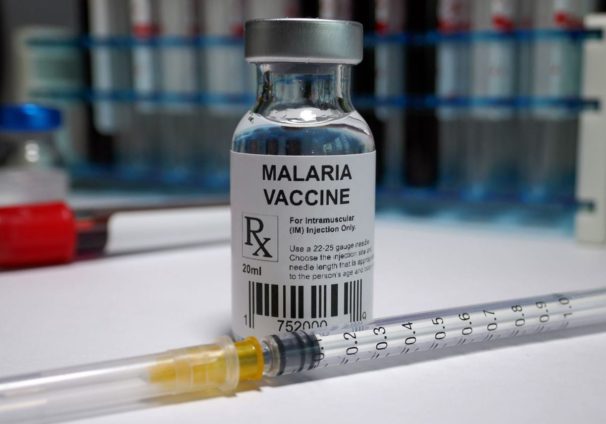
Ghana became the first country to authorize a “world-changer” malaria vaccine called R21/Matrix-M, developed at Oxford University in England and manufactured by the Serum Institute of India.
The vaccine, known to be highly effective by scientists, has passed the final trial data and will be used to prevent the disease in Ghana. The World Health Organization (WHO) also contemplates authorizing the vaccine with further research.
Malaria, a disease from parasites that brings severe symptoms, including high fever, chills, and fatigue, killed approximately 619,000 individuals in 2021. A significant, century-long scientific effort has gone into creating a vaccination that guards against the malaria parasite.
According to trial results from early studies in Burkina Faso, the new vaccine was shown to be as effective as 80%. It was administered in three initial doses with a booster one year later.
The vaccine contains Matrix-MTM from Novavax, an adjuvant with a saponin basis that boosts and prolongs the immunological response. The Matrix-M adjuvant also promotes antigen-presenting cells to penetrate the injection site and improves antigen presentation in adjacent lymph nodes. The COVID-19 vaccine by Novavax also effectively uses this technology and is a crucial component of other vaccines currently in the research process.
“This marks a culmination of 30 years of malaria vaccine research at Oxford with the design and provision of a high efficacy vaccine that can be supplied at adequate scale to the countries who need it most,” says Professor Adrian Hill, the director of the Jenner Institute of the Nuffield Department of medicine at Oxford University.
Despite the development of a “world-changer” vaccine, the universal usage of the vaccine will depend on a larger trial outcome involving approximately 5,000 children. The trial was scheduled for the end of 2021 but has not been publicly announced. After viewing the trial results, Ghana’s Food and Drugs Authority approved the vaccination for children between the ages of five months and three years old.
There is uncertainty over the quantity of foreign financing for the R21 vaccination until the WHO recommends it for broad usage. The phase 3 study for the vaccine is still underway, but prior studies had demonstrated effectiveness levels of 77%, which were sustained when a single booster dosage was administered a year later.
The Serum Institute of India, an Indian biotechnology and biopharmaceuticals company, plans to manufacture around 100 to 200 million doses yearly with a vaccine factory in Accra, Ghana.
“We expect R21 to make a major impact on malaria mortality in children in the coming years, and in the longer term [it] will contribute to overall final goal of malaria eradication and elimination,” shares Professor Hill with BBC News.
Adar Poonawalla, CEO of the Serum Institute of India, concluded: ”Malaria is a life-threatening disease that disproportionately affects the most vulnerable populations in our society and remains a leading cause of death in childhood. Developing a vaccine to greatly impact this huge disease burden has been extraordinarily difficult. At the Serum Institute of India, we are committed to our vision of Health for All and ensuring equitable access to vaccines for people around the world.”
SOURCE: HEALTH NEWS
